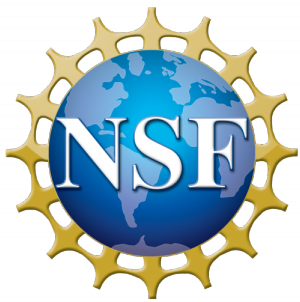September 1st, 2019 - August 31st, 2022 | PROJECT
This project responds to calls to increase children's exposure and engagement in STEM at an early age. With the rise of the maker-movement, the informal and formal education sectors have witnessed a dramatic expansion of maker and tinkering spaces, programs, and curricula. This has happened in part because of the potential benefits of tinkering experiences to promote access and equity in engineering education. To realize these benefits, it is necessary to continue to make and iterate design and facilitation approaches that can deepen early engagement in disciplinary practices of engineering and other STEM-relevant skills. This project will investigate how stories can be integrated into informal STEM learning experiences for young children and their families. Stories can be especially effective because they bridge the knowledge and experiences young children and their caregivers bring to tinkering as well as the conversations and hands-on activities that can extend that knowledge. In addition, a unique contribution of the project is to test the hypothesis that stories can also facilitate spatial reasoning, by encouraging children to think about the spatial properties of their emerging structures.
This project uses design-based research methods to advance knowledge and the evidence base for practices that engender story-based tinkering. Using conjecture mapping, the team will specify their initial ideas and how it will be evident that design/practices impact caregivers-child behaviors and learning outcomes. The team will consider the demographic characteristics, linguistic practices, and funds of knowledge of the participants to understand the design practices (resources, activities) being implemented and how they potentially facilitate learning. The outcome of each study/DBR cycle serves as inputs for questions and hypotheses in the next. A culturally diverse group of 300+ children ages 5 to 8 years old and their parents at Chicago Children's Museum's Tinkering Lab will participate in the study to examine the following key questions: (1) What design and facilitation approaches engage young children and their caregivers in creating their own engineering-rich tinkering stories? (2) How can museum exhibit design (e.g., models, interactive displays) and tinkering stories together engender spatial thinking, to further enrich early STEM learning opportunities? and (3) Do the tinkering stories children and their families tell support lasting STEM learning? As part of the overall iterative, design-based approach, the team will also field test the story-based tinkering approaches identified in the first cycles of DBR to be most promising.
This project will result in activities, exhibit components, and training resources that invite visitors' stories into open-ended problem-solving activities. It will advance understanding of mechanisms for encouraging engineering learning and spatial thinking through direct experience interacting with objects, and playful, scaffolded (guided) problem-solving activities.
This project is funded by the National Science Foundation's (NSF's) Advancing Informal STEM Learning (AISL) program, which supports innovative research, approaches, and resources for use in a variety of learning settings.
Project Website(s)
(no project website provided)
Project Products
2021 STEM for All Video Showcase Video: Story-Based Tinkering at Home: STEM Learning During COVID
Conducting Research-to-Practice Work During a Pandemic: Utilizing Video and Zoom to Engage Families in Tinkering-At-Home
Invitations to Learn and Play through Video: Practical Tips for Museum Professionals
2022 Poster - "You Gotta Tell the Camera!': Digital storytelling activities support children's narrative and engineering talk
2022 Poster - Connections between digital storytelling and children’s narrative and engineering talk
2022 Poster - Tinkering at Home: Creating Equitable Engineering and Spatial Learning Opportunities for Latine Children and Families during the COVID-19 Pandemic
2022 Poster: The Effect of Building Materials on Families’ Spatial Conversations During a Playful Construction Activity
2023 Poster - Moment-to-moment associations between parental autonomy support and children's STEM engagement during tinkering
2023 Poster - Linkages between children's story and STEM engagement during tinkering
2023 Poster - Spatial thinking during tinkering challenges: The role of spatial information
2023 Poster - Problem-solving for toy friends during tinkering promotes storytelling and testing talk in family reflections
2023 Poster - Parent-child reflections about multiple visits to a museum tinkering exhibit
2023 AISL Awardee Mini-Poster: 1906940, 1906808, 1906839
Team Members
Tsivia Cohen, Principal Investigator, Chicago Children's MuseumKim Koin, Co-Principal Investigator
Natalie Bortoli, Co-Principal Investigator
Catherine Haden, Principal Investigator, Loyola University of Chicago
David Uttal, Principal Investigator, Northwestern University
Maria Marcus, Co-Principal Investigator
Funders
Funding Source: NSF
Funding Program: Advancing Informal STEM Learning (AISL)
Award Number: 1906839
Funding Amount: $616,380
Funding Program: Advancing Informal STEM Learning (AISL)
Award Number: 1906940
Funding Amount: $854,719Funding Source: NSF
Funding Program: Advancing Informal STEM Learning (AISL)
Award Number: 1906808
Funding Amount: $396,260
Tags
Access and Inclusion: English Language Learners | Ethnic | Racial
Audience: Elementary School Children (6-10) | Evaluators | Learning Researchers | Museum | ISE Professionals | Parents | Caregivers | Pre-K Children (0-5)
Discipline: Education and learning science | Engineering
Resource Type: Project Descriptions | Projects
Environment Type: Exhibitions | Making and Tinkering Programs | Museum and Science Center Exhibits | Museum and Science Center Programs | Public Programs

